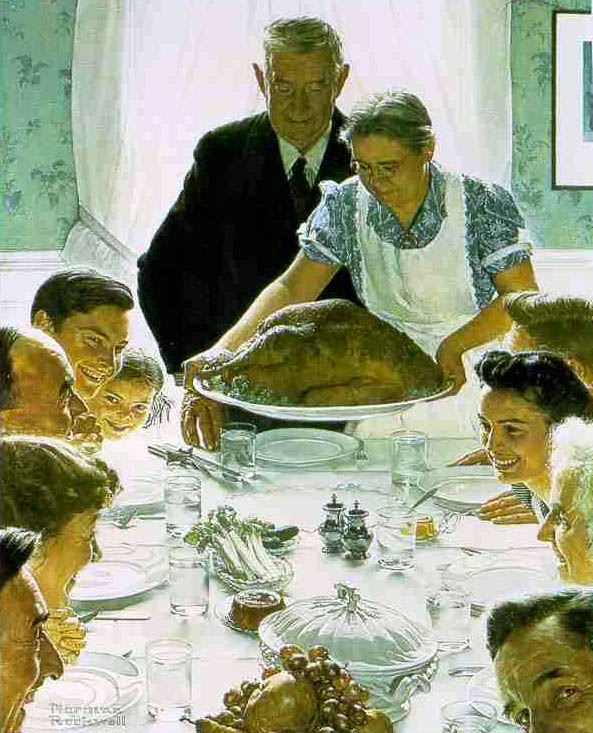 [1]
[1]MAYFIELD, Ky. (BP)–The American holiday of Thanksgiving possesses a long history of taking place during times of adversity. As we pause to thank God for our blessings on Thanksgiving Day, we also should remember our fellow Americans who are facing over 10 percent unemployment and many others who are enduring underemployment.
Strangely enough, Thanksgiving and hard times have been companions off and on ever since 1621.
When the Pilgrims of 1621 held their first Thanksgiving, the previous winter had been one of brutal adversity in which the elements and disease brought death to many of them, including a good many women and children.
In the years after 1621, Thanksgiving remained a largely regional holiday and was celebrated as a public festival on only special occasions. Nevertheless, the Continental Congress during the American Revolution set aside a day of thanksgiving in December. Although the proclamation recognized the difficult times, God was thanked for His role in helping the American colonists in a time of war.
In much the same vein, President George Washington issued his first proclamation of thanksgiving at a time when Americans did not know for sure whether the American experiment in republicanism would even work. Washington’s proclamation of thanks was largely concerned with prayers for the very uncertain future of the new republic.
As states slowly began recognizing a special Thanksgiving holiday in late November, the new nation continued to employ prayers to the Almighty to address times of adversity interlaced with their thanks. Lincoln’s special 1863 Thanksgiving proclamation acknowledged a “civil war of unequaled magnitude and severity.” Confederate Thanksgiving proclamations also referenced the difficult times the South was experiencing.
As the various states set a day to observe Thanksgiving, the annual feast endured both the boom and bust times of the Gilded Age and the uncertainties of the early 20th century. President Wilson’s World War I Thanksgiving Proclamation of 1917 acknowledged that the nation was “in the midst of sorrow and great peril.” Wilson, a devout Christian, also warned Americans not to forget to thank God in this time of “darkness.”
When the United States faced the 10 years of the Great Depression from 1929-1939, those Thanksgivings took place during a time of unparalleled adversity. President Hoover ignored the depression in his 1929 proclamation but both he and President Roosevelt acknowledged the nation’s suffering in the proclamations to follow.
 Adversity continued in the 1940s during World War II. When President Roosevelt gave a speech stating that Americans valued the “four freedoms,” Norman Rockwell was inspired to produce four paintings to reference each freedom. His painting, “Freedom from Want,” featured a domestic scene of an American family sitting down to a Thanksgiving feast during the war years. The painting expressed the mood of thankful reverence, reflecting the subdued joy of the holiday meal during the war years.
Adversity continued in the 1940s during World War II. When President Roosevelt gave a speech stating that Americans valued the “four freedoms,” Norman Rockwell was inspired to produce four paintings to reference each freedom. His painting, “Freedom from Want,” featured a domestic scene of an American family sitting down to a Thanksgiving feast during the war years. The painting expressed the mood of thankful reverence, reflecting the subdued joy of the holiday meal during the war years.
Since World War II, the United States has experienced the Thanksgiving holiday in both good times and bad. War, recessions and civil strife have been balanced by times of peace, prosperity and civility.
Currently the United States is involved in two wars and is enduring a continuing recession. American Christians, including Southern Baptists, will pause during Thanksgiving to thank God for their blessings even in these troubled times.
Indeed as Christians encounter adversity, it is their obligation to trust God for His blessings. Thanksgiving and adversity have been “uneasy” companions in the past. They still exist together today.
–30–
Stephen Douglas Wilson is vice president for academic affairs at Mid-Continent University in Mayfield, Ky., and a member of the Southern Baptist Convention’s Executive Committee.
